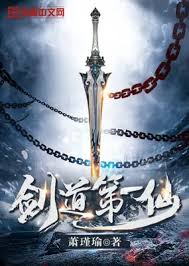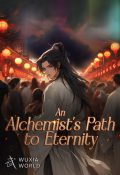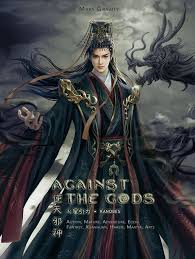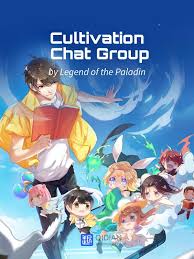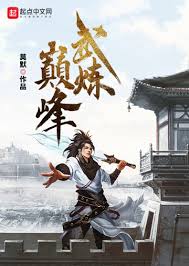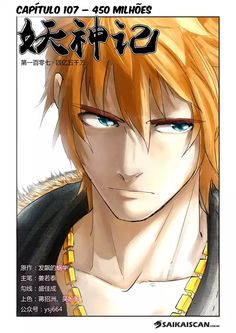The Story in 3 Sentences
Su Yi, the once supreme ‘Master of Ten Thousand Daos’ who reigned over the Nine Provinces of the Wilds, chooses to reincarnate in pursuit of greater heights only to be betrayed in his final moments by those he trusted most, his spirit vowing vengeance.
Five hundred years later, he awakens as a crippled live-in son-in-law and local laughingstock in the Jade Capital’s Su Family, forced to navigate a world that has moved on without him while concealing his true capabilities beneath a veneer of weakness.
Armed with the wisdom of his past life and an unyielding dedication to the Dao of the Sword, Su Yi embarks on a journey back to the top, confronting ancient enemies, unraveling cosmic secrets, and redefining what it means to be the First Immortal of the Sword.
Why It Stands Out
1. Depth of Protagonist Development
Su Yi stands out as a meticulously crafted protagonist whose character arc transcends typical xianxia tropes; his journey is not just about power accumulation but profound philosophical exploration of the Dao, self-discovery, and the nuanced reconciliation of past and present identities.
2. Innovative Integration of Sword Dao Philosophy
The novel delves deeply into the metaphysical and spiritual aspects of sword cultivation, presenting sword Dao not merely as a combat tool but as a pathway to existential enlightenment, with elaborate descriptions of sword intent, spiritual resonance, and the symbiotic relationship between wielder and blade.
3. Narrative Balance Between Action and Introspection
Unlike many cultivation stories that prioritize relentless action, this novel masterfully intersperses high-stakes battles with moments of quiet reflection, character-driven dialogue, and rich world-building, creating a rhythm that allows readers to fully immerse in both the external conflicts and internal growth of its characters.
Characters That Leave a Mark
There’s Pi Mo – one of Su Yi’s foremost disciples from his previous life, whose betrayal during Su Yi’s final moments adds layers of emotional depth and moral complexity to the narrative, embodying the themes of trust and treachery that permeate the story.
You’ll meet Jing Xing, another disciple whose actions during the betrayal and subsequent encounters with the reincarnated Su Yi explore themes of redemption, loyalty, and the enduring impact of past relationships on present circumstances.
And Qing Tang? She’s the disciple whose role in Su Yi’s past and potential reappearance in his new life introduces elements of unresolved bonds and the intricate interplay between karma and destiny.
The Flaws Fans Debate
The novel’s pacing receives criticism for occasional sluggishness, particularly in segments heavy with philosophical exposition or repetitive face-slapping encounters, which some readers feel disrupt narrative momentum and test patience.
Grammatical inconsistencies and awkward phrasing in the translation, especially in earlier chapters, occasionally mar the reading experience, though many acknowledge significant improvements in later parts of the series.
Some fans express frustration with the harem elements, finding them underdeveloped or perfunctory compared to the main plot, and feel that romantic relationships sometimes lack the depth and nuance afforded to other aspects of the story.
Must-Experience Arcs
Ch. 1–100: The Rebirth and Initial Ascension – This arc establishes Su Yi’s reincarnation, his struggles as a crippled son-in-law, and his initial steps toward reclaiming his power, setting the stage for his journey of vengeance and rediscovery.
Ch. 300–400: The Unveiling of Betrayals – A critical section where Su Yi confronts disciples from his past life, unraveling the motives behind their treachery and forcing him to reconcile his former glory with his current reality.
Ch. 1000–1100: The Cosmic Dao Revelations – The narrative expands to cosmic scales as Su Yi delves into higher realms of cultivation, exploring profound Dao principles and engaging with entities and forces that challenge his understanding of existence itself.
Killer Quotes
“Your father gave me these scars… I no longer have a soul.” - A haunting reflection on the enduring impact of betrayal and loss.
“Classification only meant shit if you walked back out of the gate.” - A blunt reminder of the novel’s emphasis on practical survival over theoretical rankings.
“They see a master teacher. I see a walking compilation of flawed techniques and a soon-to-be-slapped face.” - Exemplifies Su Yi’s discerning eye and the novel’s theme of perceiving deeper truths beneath surface appearances.
Cultural Impact
The novel has sparked vibrant discussions within the xianxia community about the nature of betrayal and redemption, with fans deeply analyzing the moral complexities of characters like Pi Mo and Jing Xing.
It has inspired fan-generated content, including intricate theories about Su Yi’s Dao progression and artistic depictions of key sword techniques and battles, highlighting its engagement with creative audiences.
The series is often cited in debates about quality translations in web novels, with its initial grammatical issues and subsequent improvements serving as a case study in the evolution of translated cultivation literature.
Final Verdict
Start Here If You Want:
A cultivation novel that combines intense action with deep philosophical inquiry, offering a protagonist whose intellectual and spiritual depth is as compelling as his combat prowess.
A story where sword Dao is explored with unprecedented metaphysical depth, transforming every battle into a lesson in existential philosophy and spiritual growth.
A narrative that balances personal vengeance with cosmic exploration, taking readers from the humiliating depths of a crippled son-in-law’s life to the awe-inspiring heights of celestial conflict.
Study If You Love:
The intricate character studies and moral complexities of works like “Reverend Insanity,” but with a greater emphasis on philosophical depth and less on outright villainy.
The seamless blend of action and introspection found in “Lord of the Mysteries,” where every battle serves both plot progression and character development.
Stories that explore reincarnation with serious attention to the psychological and emotional implications, such as “The Second Coming of Gluttony,” but with a more refined focus on Daoist philosophy.
Avoid If You Prefer:
Fast-paced, action-packed narratives with minimal philosophical diversion; this novel frequently pauses for deep contemplation and Dao exploration.
Stories with straightforward, linear power progression; Su Yi’s growth often involves complex, non-linear enlightenment and philosophical breakthroughs.
Perfectly polished translations from the start; the early chapters suffer from some grammatical issues that might distract discerning readers.
